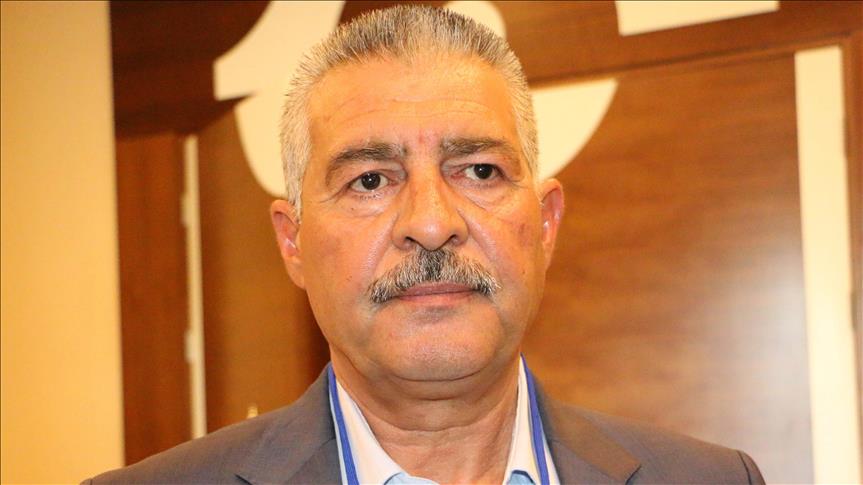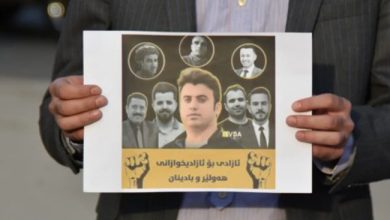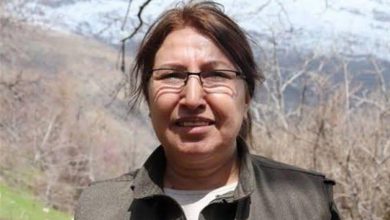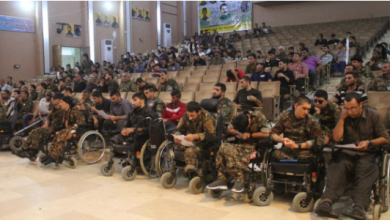An Interview with Kurdish Opposition Leader Abdulaziz Tammo, Part 2
Long have intra-Kurdish peace talks been the talk of the day for those following Kurdish politics. As part of Syria’s Kurds remain under the leadership of one of the Kurdish sides (PYD): a group, whose fighters are hailed in the West for their fight against Islamic State, and receive support of the International Coalition. The crimes this group commits – and the disputes they have with other Kurdish factions – often remain without coverage in Western media.
The other, less-known group of Kurds – made up of Kurdish politicians of different factions, joined by tens of thousands of its followers – now live in exile.
These Kurds are scattered over Turkey, Iraqi Kurdistan and Europe. And they are longing for intra-Kurdish peace, to be able to return to the war-torn country they call home. Yet, this intra-Kurdish peace has never seemed so far.
I spoke to Abdulaziz Tammo, the head of the Association of Independent Syrian Kurds (KKS-Syria), that currently lives in Istanbul. He is the brother of Mashaal Tammo, a Kurdish politician who was assassinated in Qamishli in 2011 (appearantly by PYD militants).
Together we attempt to shed light on three different matters that keep the minds of Syria’s Kurds busy. This is part 2 of the interview.
Intra-Kurdish Peace Talks have led nowhere
Q: We have long been hopeful, reading many messages about intra-Kurdish peace talks. Lately, it seems there has come a halt to negotiations between SDF and ENKS. Do you see a future wherein both factions can come to peace? What are the reasons these negotiations remain without any real outcomes?
“On the contrary, we are not optimistic about this dialogue, because basically there can be no dialogue between a Syrian party and another non-Syrian party coming from outside the Syrian borders [referring to the PKK; which is based in Qandil and made up of Kurds from all countries with a Kurdish minority].”
“We were told by the Kurdish National Council (ENKS) of the futility of dialogue with terrorists. These are a terrorist organization that seek to control the Kurdish region of Syria with the power of guns, that were initially provided by the Syrian regime, then the international coalition to fight ISIS.”
“This militia must leave Syrian territory and hand over the area to its people to manage their affairs on their own. The PKK is an organization with a totalitarian ideology that does not recognize the existence of others that differs from it, and it has ended the Kurdish political movement in Syria by burning the offices of the Syrian Kurdish parties and expelling the leaders of the Kurdish National Council out of Syria, and does not allow any political activity that contradicts its ideology.”
“The PKK has committed crimes against the Syrian Kurds and created a rift between the Kurds themselves, and the Kurds and their Arab partners in that region. And the Qandil leaders will not accept any of the other parties to participate in managing the affairs of this region.”
“This is because the PKK sees in the Kurdish region a farm of the PKK that is used as a human and financial reservoir only to implement its own agenda and it has nothing to do with the Syrian Kurdish cause nor the general Syrian cause.”
“The PKK has used the Syrian Kurds as fuel in its war against Turkey, the neighboring country of Syria which shares 900 km of its border with the Syrian-Kurdish majority area. Turkey is not an enemy of the Syrian Kurds.”
“The Syrian Kurds are part of the Syrian people, and their cause is a Syrian national issue, and their enemy is not in Ankara or Baghdad, as the PKK and its Syrian militias claim, and therefore there is a big difference between the two sides of the Dialogue. Basically, it’s NOT a dialogue between two groups of Syrian Kurds.”
“In fact, the majority of the PYD leaders are also PKK leaders. We expressed our rejection of this dialogue to the Kurdish National Council because it gives legitimacy to the presence of Qandil leaders on Syrian territory.”
“The PKK must leave Syria, and the International Coalition to Fight ISIS must expel the 4,600 non-Syrian PKK fighters outside the Syrian borders.”
“This is a sterile dialogue and will not have any outcomes that serve the interests of the Syrian Kurds. This dialogue only serves the PKK militias as a media ploy.”
Read more about PKK involvement in North-East Syria: Here






